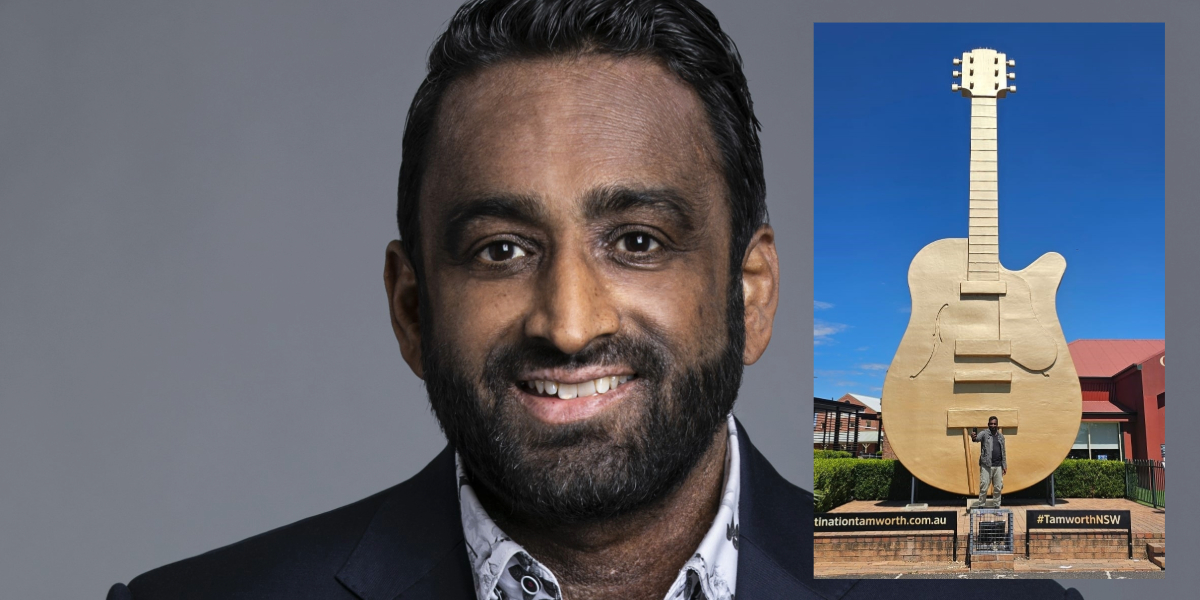The spotlight has turned to the night-time economy of the New England region, with NSW 24-Hour Economy Commissioner Michael Rodrigues visiting Tamworth to explore its unique opportunities and challenges.
With 21 per cent of NSW’s workforce active between 6pm and 6am, the night-time economy impacts industries, leisure, and community safety.
Commissioner Rodrigues emphasised the importance of tailoring strategies to each community.
“Communities are all different, so no one size fits all approach,” he said.
“It’s really up to the community to decide between themselves what it wants to be and for whom and that changes from place-to-place. Tamworth is interesting in its context of its growth and changing population, and you want to find that balance, and that’s not just music, but more broadly, culture.”
Mr Rodrigues highlighted how the NSW Government was working with local councils to create a mutually beneficial experience for residents and visitors.
“What success looks like is that it’s a massive exercise in aligning stakeholders,” he said.
“We try to find ways to put everything together and elevate that going-out experience so it resonates with people. This is an exercise in making the residents of an area aware of who they are, what they are, and the stories they want to tell.”
Tamworth Regional Council Executive Manager of Creative Communities and Experiences Peter Ross welcomed the Commissioner’s visit, noting its significance for regional New South Wales.
“It was really great because it just didn’t feel like a box tick,” he said.
“He really wanted to see what we do, how we do it, where we do it, and get a better understanding of the complexities and the many layers to Tamworth.”
Mr Ross also said the importance of legislative changes were highlighted including the introduction of Special Entertainment Precincts, which protect venues from complaints about noise when new residential developments are built nearby.
“Having the biggest festival in the Southern Hemisphere means two things: the protection of live music venues and reducing red tape around small bars and street dining,” he said.
“These reforms will help Tamworth come alive again.”
Transport, he said, was a key area for improvement to ensure the night-time economy thrives.
“Regionally, transport is an issue anyway, but the Commissioner is looking at it holistically to make sure people can go out at night and get home safely which is about a whole range of things,” he said.
Mr Ross and Mr Rodrigues discussed the council’s plans for a new performing arts centre in Tamworth, which Mr Ross said would be a hub for the entire region.
“We want it to become a watering hole and a cornerstone for everything we do in festival as well,” Mr Ross said.
“It will give us a social hub and, in our business case, we put a lot of work into it being active day and night.”
The Commissioner praised Tamworth’s initiatives and expressed excitement about the region’s future, particularly its renowned Country Music Festival.
“We are looking forward to attending the Tamworth Country Music Festival and other events in the area,” he said.
“We have been working with council and, specifically, in the case of Tamworth, the Special Entertainment Precinct idea has been a little bit shaped by those discussions.”
Mr Rodrigues said he found the Tamworth situation interesting as council had so many cultural assets and that he didn’t know of many other councils that had such unique assets, meaning the capability in Tamworth Regional Council was “quite significant”.
With the Commissioner wanting to learn more about the regional 24-hour economy by visiting the New England and working with council and locals to align stakeholders, enhance transport, and streamline regulations, Tamworth is working to reinvigorate its night-time economy and continue its legacy as a cultural and entertainment destination.
Don’t miss any of the important stories from around the region. Subscribe to our email list.


